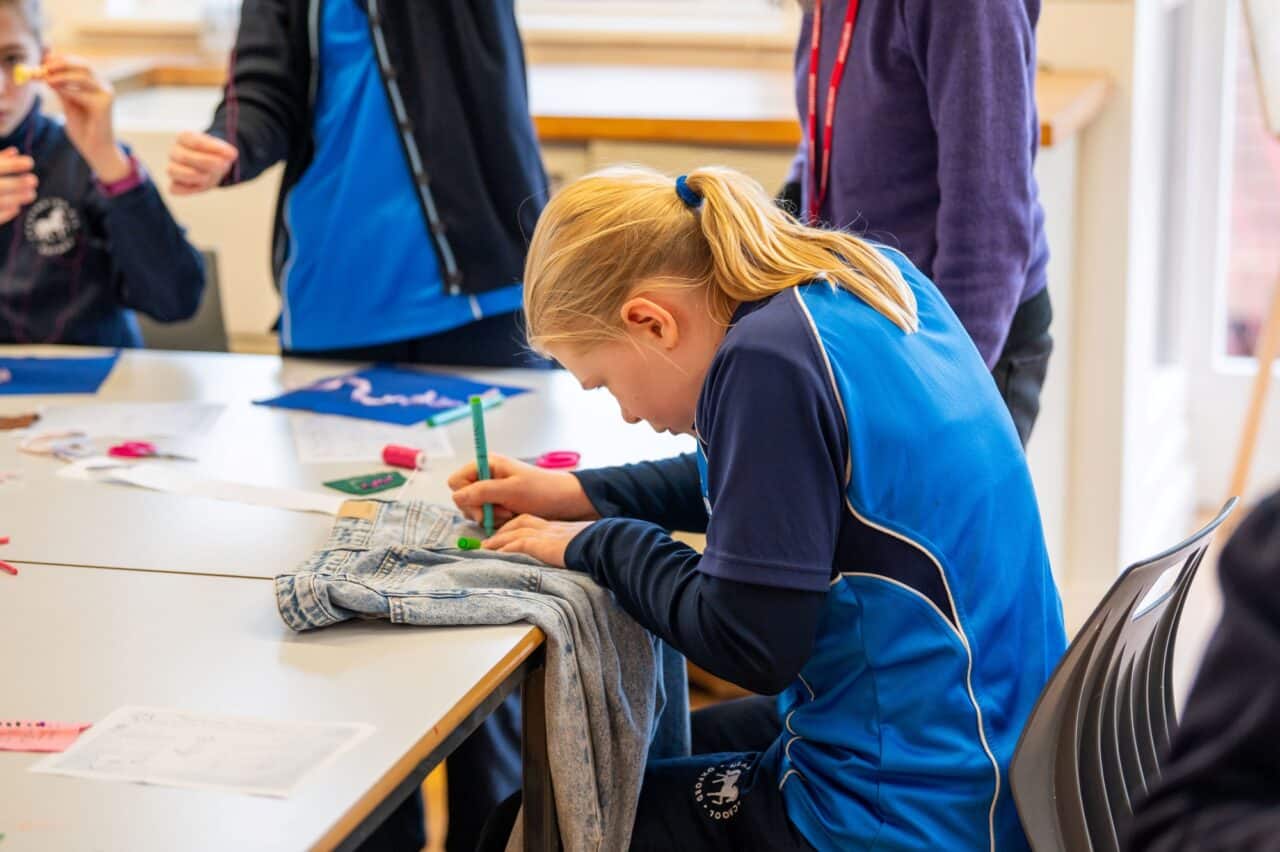The Global Impact of Reading
As we eagerly anticipate World Book Day, a celebration of literature and storytelling cherished by bookworms and bibliophiles alike, I find myself reflecting on the profound influence that books have had on my life and the lives of countless children around the world. At Headington Prep, this annual event serves as a poignant reminder of the power of storytelling to transcend borders and ignite imaginations, as we come together to celebrate the magic of books and inspire a lifelong love of reading in our pupils.
In the words of the beloved Dr Seuss: “Reading can take you places you have never been before.” This certainly proved to be true in my childhood, as I climbed ‘The Magic Faraway Tree’ multiple times thanks to Enid Blyton’s rich and fantastical descriptions. More recently, I have felt the chilly air of the Arctic while enjoying Philip Reeve and Sarah McIntyre’s ‘Pugs of the Frozen North’ with my class. From Narnia and Hogwarts to Mount Olympus or the Amazon, each book holds the key to unlocking new realms of imagination and discovery.
Recently, with my Year 3 book club, we delved into ‘The Firework-Maker’s Daughter’ by Philip Pullman, a captivating tale set against the backdrop of the majestic Merapi volcano in Indonesia. Mixing reality with fantasy, the story follows the protagonist Lila, along with her good friend Chulak and his elephant companion Hamlet, as they embark on a daring adventure to confront the magical Fire-Fiend. For children in Indonesia, where volcanoes are a backdrop, literature allows them to dream of distant places like London and Oxford, envisioning the grandeur of these cities through the pages of beloved stories, like ‘Paddington Bear’ by Michael Bond and ‘The Golden Compass’ by Philip Pullman. In contrast to their own surroundings, where natural wonders abound, the allure of bustling city life depicted in English literature offers a captivating escape into a world of iconic landmarks, charming characters and exciting adventures.
My teaching journey has taken me to schools spanning three continents, each with its own unique cultural landscape. In Tanzania, where books were hard to come by but the thirst for knowledge was boundless, the school library became a sanctuary for children with aspirations of becoming pilots, doctors and adventurers. Despite the limitations, books served as their passports to explore the icy tundra of the Arctic and the bustling streets of New York City. I still vividly remember the moment my own daughter, in Year 1 at the time, passed by my classroom door on her way back from the school library and shouted excitedly to me, ‘I just picked the most amazing book!’ I don’t recall the name of the book, but I do remember the joy on her face, a testament to the endless possibilities that books offer even the youngest of readers.
“A book is a gift you can open again and again” – Garrison Keillor
Storytelling is a powerful tool for nurturing a love of language and literature in children and it should be embraced throughout primary school and beyond. Through storytelling, adults read aloud to children, weaving a tapestry of words that ignites their imagination and fosters a deep connection with the story. Research has shown that reading aloud to children has numerous benefits, including enhancing language development, fostering imagination, and strengthening emotional bonds between caregivers and children.
According to research, children who are read to regularly during their early years are more likely to develop strong literacy skills and a lifelong love of reading. Additionally, reading aloud exposes children to a rich variety of vocabulary and language structures, helping to expand their linguistic abilities. For example, a simple picture book set in a farmyard can inspire a rich and detailed conversation about the different homes that farm animals live in, enriching children’s vocabulary and knowledge of the natural world.
Beyond academic benefits, storytelling also provides a valuable opportunity for children to engage with complex emotions, themes, and moral dilemmas in a safe and supportive environment. It’s a shared experience that stimulates curiosity, cultivates empathy and lays the foundation for a lifelong appreciation of literature.
In addition to storytelling, it’s essential to promote reading for pleasure among children. Reading for pleasure encompasses the joyous act of independently exploring books, magazines, comics, or any written material that sparks interest and curiosity. Research has shown that children who read for enjoyment not only perform better academically but also develop stronger empathy, creativity, and social skills. According to a report by the National Literacy Trust, children who read for pleasure are more likely to have higher levels of well-being and life satisfaction.
Encouraging children to choose books based on their interests and preferences fosters a sense of autonomy and ownership over their reading habits, making reading a joyful and rewarding experience rather than a chore or obligation. Reading for pleasure allows children to explore diverse perspectives, discover new interests, and develop a lifelong habit of seeking solace and inspiration within the pages of a book. It’s an opportunity for personal growth, self-expression and endless exploration of the vast world of literature.
Dr Seuss further reminds us that: “The more that you read, the more things you will know. The more that you learn, the more places you’ll go.” This sentiment holds true whether viewed through a global lens or an ambitious perspective. Reading is the cornerstone of education, bridging disciplines and opening doors to boundless opportunities. From delving into the lives of historical figures to unravelling the mysteries of science and mathematics, being a fluent and confident reader empowers children to navigate the complexities of the world with curiosity and insight.
In today’s digital age, the internet inundates us with a wealth of information at our fingertips. While this abundance of global literature presents incredible opportunities for learning, it also underscores the importance of cultivating critical thinking skills in our children. As teachers and parents of primary age children, guiding young learners through the digital maze is essential. Teaching them to discern between credible sources and misinformation empowers them to navigate the online world responsibly.
As a hook into ‘Curiosity Day’, Miss Crooks, our Deputy Head Academic, exemplified this challenge brilliantly with the help of our school bears. By fostering a culture of critical literacy at home and in the classroom, we equip our children with the tools they need to sift through the vast expanse of digital content and extract valuable knowledge. Through this process, we not only cultivate a deeper understanding of the world around us but also instil a sense of curiosity and inquiry that will serve them well throughout their lives.
As educators at Headington Prep, we understand the transformative power of reading in shaping young minds and inspiring future generations. Through literature, we invite our pupils on a journey of discovery, encouraging them to explore the vast expanse of human knowledge and imagination. With each page turned, we empower them to embark on their own adventures, knowing that the world is theirs to explore, one book at a time.



